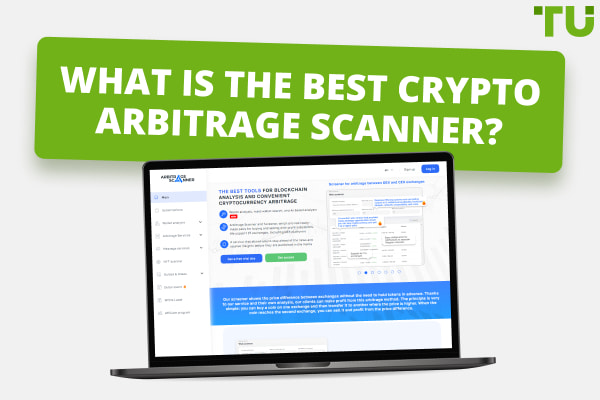The Best Crypto Wallets For Beginners: Top 8 List

Best cryptocurrency wallet for beginners - ByBit Wallet
Choosing an appropriate wallet is a significant decision for those new to cryptocurrency. This article has highlighted the essential considerations for beginners before selecting a user-friendly wallet.
| Wallet | Cold or Hot | Best for |
|---|---|---|
Hot (Mobile, Web) |
Exchange Trading, Margin Trading, Staking & Earning |
|
Cold (Hardware) |
Long-Term Holdings, Maximum Security, Multi-coin Support |
|
Cold (Hardware) |
Security-Focused Users, Multi-coin Support, User-Friendly Interface |
|
Hot (Mobile) |
Mobile-First Users, Multi-coin Support, DApp Integration |
|
Hot (Browser Extension, Mobile) |
DApp Interaction, Ethereum & ERC-20 Tokens, Advanced Users |
|
Bitget Wallet |
Hot (Mobile) |
Decentralized Finance (DeFi) Users, On-chain Governance, Secure Smart Contract Interactions |
Hot (Mobile, Web) |
Beginner-Friendly, Custodial Wallet, Buying & Selling Cryptocurrency |
|
Crypto.com Wallet |
Hot (Mobile) |
Trading & Spending Multiple Cryptocurrencies, Rewards & Benefits, Visa Card Integration |
Cryptocurrency wallets are essential for beginners looking to secure their digital assets safely, but selecting the right wallet can be challenging, given the overwhelming options available in the market. For those just getting started, choosing an inappropriate wallet can lead to a poor user experience or lost funds. The right wallet needs to match one's priorities, whether security, ease of use, asset support, or cost.
This article helps crypto newcomers learn the key factors to consider when selecting a beginner-friendly wallet. It explains the different types of wallets and their distinguishing features. It provides detailed reviews of the top 8 highest recommended wallets tailored explicitly for individuals just entering cryptocurrency. By equipping beginners with knowledge of the wallets optimized for their needs, this piece will help them start their crypto journey with a secure and seamless wallet setup that matches their requirements as first-time users.
-
What is a Cryptocurrency Wallet?
Imagine a cryptocurrency wallet as a digital safe where you can securely store and access your virtual coins. It's like an app or a physical device that safeguards your private keys. It is an essential tool for managing your digital wealth. With a crypto wallet, you can send, receive, and keep an eye on your digital treasure trove.
-
What's the Difference Between a Hot Wallet and a Cold Wallet?
Think of hot wallets as your on-the-go digital purses, always online, like web-based, mobile, or desktop versions. However, cold wallets are akin to secret vaults, staying offline for safety, like hardware or paper wallets. While hot wallets are all about convenience, letting you trade swiftly, cold wallets are the digital equivalent of a bank vault – less handy but far more secure.
-
Can I Recover My Crypto Wallet if I Lose My Phone or Hardware Device?
If you misplace your phone or hardware device, don't worry. You can reclaim your crypto wallet if you hold onto your recovery seed phrase or private keys. These can revive your wallet and all its contents.
-
Do I need a wallet for every cryptocurrency?
Not necessarily. It's like having a versatile wallet that can hold different currencies. Many wallets are multi-tasking, accommodating a variety of cryptocurrencies in one handy spot. There are wallets tailored for specific currencies like Bitcoin or Ethereum, but often, one wallet can be the home for your diverse crypto collection.
Understanding crypto wallets for beginners
A cryptocurrency wallet manages public and private keys associated with cryptocurrencies rather than storing them. These keys enable transactions, such as sending or receiving cryptocurrencies like Bitcoin. Cryptocurrency wallets interact with blockchains to validate the ownership of coins or tokens. The significance of these wallets lies in their role in providing access to cryptocurrencies; with the keys, one can access their digital assets.
Crypto wallets don't just store private keys; they offer several features to ease the management and use of cryptocurrencies:
-
Secure and encrypted storage of private keys
-
Creation of public wallet addresses for receiving coins
-
Facilitation of outgoing transactions to transfer coins
-
Display of current balances, transaction histories, and other relevant details
-
Compatibility with different blockchains and client platforms
-
Enhanced cryptographic security measures, including 2FA
There are various cryptocurrency wallets, including physical and digital formats.
Hot Wallets:
-
These are online, software-based wallets accessible via web, mobile, or desktop applications. They are always connected to the internet, whether custodial or non-custodial
-
Advantages include their constant online presence, enabling quick and convenient transactions, making them suitable for everyday use
-
However, their continuous internet connectivity makes them more susceptible to cyber-attacks. Security breaches, such as the $5.7 million crypto theft from Roll's hot wallet in 2023, have occurred
Cold Storage Wallets:
-
These are hardware wallets, often resembling USB devices, that physically store private keys. Other forms, like paper wallets or offline computers, are also considered cold storage
-
Their offline nature provides enhanced security against internet-based hacking threats. Even when connected to an internet-enabled device, the risk of hacking is minimal as the signing process is internal
-
Accessing these wallets requires physical possession and typically a password or pin
Each type of wallet has its specific uses, advantages, and disadvantages. Hot wallets offer convenience and ease of use for regular transactions, while cold storage wallets provide higher security, especially for long-term holdings. The wallet choice depends on the user's specific needs and the balance they wish to strike between security and convenience.
Best crypto exchanges
Top 8 crypto wallets for beginners
| Wallet | Cold or Hot | Best for |
|---|---|---|
Hot (Mobile, Web) |
Exchange Trading, Margin Trading, Staking & Earning |
|
Cold (Hardware) |
Long-Term Holdings, Maximum Security, Multi-coin Support |
|
Cold (Hardware) |
Security-Focused Users, Multi-coin Support, User-Friendly Interface |
|
Hot (Mobile) |
Mobile-First Users, Multi-coin Support, DApp Integration |
|
Hot (Browser Extension, Mobile) |
DApp Interaction, Ethereum & ERC-20 Tokens, Advanced Users |
|
Bitget Wallet |
Hot (Mobile) |
Decentralized Finance (DeFi) Users, On-chain Governance, Secure Smart Contract Interactions |
Hot (Mobile, Web) |
Beginner-Friendly, Custodial Wallet, Buying & Selling Cryptocurrency |
|
Crypto.com Wallet |
Hot (Mobile) |
Trading & Spending Multiple Cryptocurrencies, Rewards & Benefits, Visa Card Integration |
ByBit Wallet
Features
-
User-friendly platform with high accessibility
-
Up to 100x leverage on Bitcoin and 50x on other coins
-
HD cold wallet solution for enhanced security
-
High operational uptime of 99.99%
-
Supports major cryptocurrencies like BTC, USDT, and ETH
-
Allows credit or debit card purchases of cryptocurrencies
👍 Pros
• It is ideal for beginners due to its simplicity
• Strong emphasis on security with a robust ecosystem
• 24/7 customer support in multiple languages
• There are no deposit fees for cryptocurrencies
👎 Cons
• It may be intimidating for users not familiar with leverage trading
• The focus on trading might not suit long-term holders
Use Cases
-
Best suited for those new to crypto
-
particularly interested in trading and leverage options
ByBit stands out for its straightforward and easy-to-navigate interface, making it accessible to newcomers.
Trezor
Features
-
Provides offline cold storage as a hardware device
-
Supports 1,600+ cryptocurrencies
-
Easy-to-use interface with touchscreen
-
Advanced account recovery options
-
Integrates with popular crypto wallet apps
👍 Pros
• Top-tier security being an offline hardware device
• Broad currency supports up to 1,600+ assets
• User-friendly touchscreen design for transactions
• Account recovery is possible with backup seed phrases
• Integrations provide accessibility while cold-storing
👎 Cons
• The high price of around $190 makes it cost-prohibitive for some
• Being offline is not as convenient for active trading
Use Cases
-
Individuals who want to keep large holdings in ultra-secure cold storage
-
Anyone with substantial crypto assets looking for robust protection
-
Investors who don't need to transact or trade crypto often actively
With its intuitive touchscreen and recovery features, the Trezor Hardware wallet is more accessible for beginners than other cold wallets. The touchscreen provides an easy way to approve transactions.
Ledger
Features
-
Provides offline cold storage on USB-like devices
-
2-factor authentication for enhanced security
-
Support for 1,800+ crypto assets and tokens
-
Priced affordably compared to competitors
👍 Pros
• Cold storage gives secure protection for private keys
• 2FA offers robust account access security
• Broad support for a wide array of cryptocurrencies
• Fair pricing makes it accessible to beginners
👎 Cons
• It is not as convenient as software wallets for active use
• More limited coin support than the Trezor model
Use Cases
-
Those new to crypto who want robust cold storage security
-
Investors with medium-sized holdings seeking cold wallet protection
-
Anyone who does not need to transact crypto often actively
With its 2FA features and integration with the Ledger Live app, the Ledger Hardware wallet offers beginners a reasonably accessible cold storage solution. It aims to balance security with moderate ease of use.
Trust Wallet
Features
-
Leading non-custodial mobile wallet app
-
Supports over 160,000 crypto assets and blockchains
-
Backed by Binance exchange for trusted security
-
Built-in decentralized exchange and staking functions
-
Available as free download on iOS and Android
👍 Pros
• Wide mobile device compatibility and app connectivity
• Supports an extensive array of cryptocurrency assets
• Direct in-app access to crypto purchases and swaps
• Non-custodial giving the user full control of private keys
👎 Cons
• As a hot wallet, it lacks the security of cold storage
• Missing some more advanced features of desktop clients
Use Cases
-
Crypto investors who want an easy-to-use mobile experience
-
Anyone looking to manage a diverse portfolio of coins and tokens
-
Traders seeking quick access to crypto prices for transactions
-
Users who value accessibility on mobile devices
With an intuitive mobile interface and experience optimized for touchscreens, Trust Wallet offers new crypto users a very accessible way to start. The app simplifies accessing, sending, receiving, and trading coins and tokens.
MetaMask
Features
-
Transfers and storage of ETH and all Ethereum-based tokens
-
Minimal fees: only a standard Ethereum gas fee and a 0.875% swap fee
-
Compatibility with Ethereum-based dApps and NFTs
👍 Pros
• User-friendly with both an extension and a mobile app
• High security with a password, private keys, and a seed phrase
• It is ideal for dealing with smart contracts and NFTs
👎 Cons
• Transactions can be slow, leading to higher fees
• Ethereum gas fees are comparatively high
• Risk if the device storing private keys is compromised
Use Cases
-
It is ideal for users deeply engaged in the Ethereum ecosystem,
-
especially those trading NFTs or using dApps
MetaMask's intuitive interface, both as a browser extension and a mobile app, makes it accessible even for beginners in the crypto space.
Coinbase Wallet
Features
-
Hosted hot wallet connected to Coinbase exchange
-
Built-in DApp browser provides Web3 access -industry-leading security like 2FA and AES-256 encryption
-
Supports 7,000+ crypto assets and NFTs
👍 Pros
• Backed by major regulated exchange Coinbase
• Convenient for buying, selling, and trading crypto
• Implements robust security protections
• Wide asset support beyond Bitcoin and Ethereum
👎 Cons
• Relies on Coinbase rather than self-custody
• Higher transaction fees than self-hosted wallets
Use Cases
-
Beginners who want easy onboarding into crypto
-
Traders seeking quick access to buy/sell crypto
-
Those who prioritize convenience and simplicity
With its beginner-friendly interface, fiat onramps, and integration with the Coinbase exchange, the Coinbase Wallet provides a very accessible starting point for cryptocurrency newcomers.
Bitget Wallet
Features
-
Trading in spot, futures, and cryptocurrency
-
Competitive fees with options to use bonus funds for payment
-
Offers demo accounts for practice trading
-
Copy trading service for passive income
-
Uses both hot and cold wallets for security
👍 Pros
• Demo accounts allow new traders to practice risk-free
• Copy trading service is beneficial for passive investors
• Low trading fees enhance profitability
👎 Cons
• No fiat currency deposits or withdrawals
• Lack of educational resources for new traders
Use Cases
-
Ideal for both novice and experienced traders,
-
particularly those looking into passive income through copy trading
Bitget offers a balance of advanced features and a user-friendly interface, though it could benefit from more educational resources for beginners.
Crypto.com Wallet
Features
-
Non-custodial DeFi wallet giving users full control of keys
-
Intuitive mobile and desktop interfaces
-
Built-in access to DeFi services like staking, lending, swapping
-
Standard security like multi-factor authentication and cold storage
👍 Pros
• Gives users full control of private keys for self-custody
• Simple and easy-to-use interface on mobile and desktop
• Direct access to major DeFi protocols to earn yields
• Implements strong security protections like MFA and cold storage
👎 Cons
• A 0.5% fee charged on DeFi earnings reduces profits
• Not all features are available to users in certain jurisdictions
Use Cases
-
Traders who want to access DeFi earning options like staking and lending
-
Anyone who prioritizes non-custodial wallets with full user control
-
Users who value simplicity and ease of use in interface design
The DeFi wallet provides an intuitive experience for new crypto users. Its design focuses on simplicity, whether accessed via mobile or desktop. The wallet also has clear menus and transaction flows, allowing beginners to interact smoothly with DeFi protocols.
How do I choose the right crypto wallet for me?
Choosing the right crypto wallet involves considering various factors to ensure it aligns with your needs, preferences, and level of expertise.
-
Identify Your Needs: Determine your primary purpose for the wallet, such as everyday transactions, long-term storage, or specific features like staking or DeFi participation
-
Understand Wallet Types: Learn about the different types of wallets available, including hot wallets (online) and cold wallets (offline), and assess which type aligns best with your security preferences
-
Review Supported Assets: Ensure the wallet supports the cryptocurrencies you intend to store or trade, considering compatibility with specific coins or tokens
-
Assess Security Features: Evaluate the security measures offered by each wallet type, prioritizing features like backup and recovery options, encryption, and reputation for reliability
-
Consider Ease of Use and Additional Features: Choose a wallet with an intuitive interface, user-friendly features, and any additional functionalities you may need, such as multi-currency support or integration with exchanges
Following these best practices and choosing a secure wallet will help protect your cryptocurrency as you get started.
How can I keep my crypto wallet secure?
While the right wallet provides ample security, here are tips all beginners should follow to keep their crypto safe:
-
Use extremely strong and unique passwords for each wallet, never reusing or sharing passwords. Enable 2-factor authentication (2FA) for additional account security whenever available
-
Store private keys on a hardware wallet or paper offline for maximum security. Never store keys digitally on a computer or phone where they are more vulnerable
-
Don't overshare wallet details or crypto holdings, as this can make you a target. Share only on a need-to-know basis
-
Keep all wallet software and apps fully updated to the latest versions. Updates often include critical security patches
-
Beware of phishing attempts via email or chat asking you to visit fake wallet sites, which can steal your login info and funds
-
Only access your wallets over trusted private networks. Never use unsecured public WiFi to minimize the risk of a breach
Conclusion
With an array of wallet types and providers available, it's wise for cryptocurrency beginners to fully understand their options and choose one that best fits their needs and goals. A secure and user-friendly wallet supporting your desired crypto assets will provide a great foundation as you get started in cryptocurrency.
Team that worked on the article
Upendra Goswami is a full-time digital content creator, marketer, and active investor. As a creator, he loves writing about online trading, blockchain, cryptocurrency, and stock trading.
Professionally, he has been a marketing professional running his agency for three years now. His agency helps finance projects to grow with the help of internet technologies. Upendra Goswami is an active investor and enthusiast of stocks and cryptocurrency.
Knows about
trading, blockchain, cryptocurrency, stock trading
Alumnus of
JECRC UDML College of Engineering, Jaipur
Dr. BJ Johnson is a PhD in English Language and an editor with over 15 years of experience. He earned his degree in English Language in the U.S and the UK. In 2020, Dr. Johnson joined the Traders Union team. Since then, he has created over 100 exclusive articles and edited over 300 articles of other authors.
The topics he covers include trading signals, cryptocurrencies, Forex brokers, stock brokers, expert advisors, binary options. He has also worked on the ratings of brokers and many other materials.
Dr. BJ Johnson’s motto: It always seems impossible until it’s done. You can do it.
Mirjan Hipolito is a journalist and news editor at Traders Union. She is an expert crypto writer with five years of experience in the financial markets. Her specialties are daily market news, price predictions, and Initial Coin Offerings (ICO). Mirjan is a cryptocurrency and stock trader. This deep understanding of the finance sector allows her to create informative and engaging content that helps readers easily navigate the complexities of the crypto world.



















